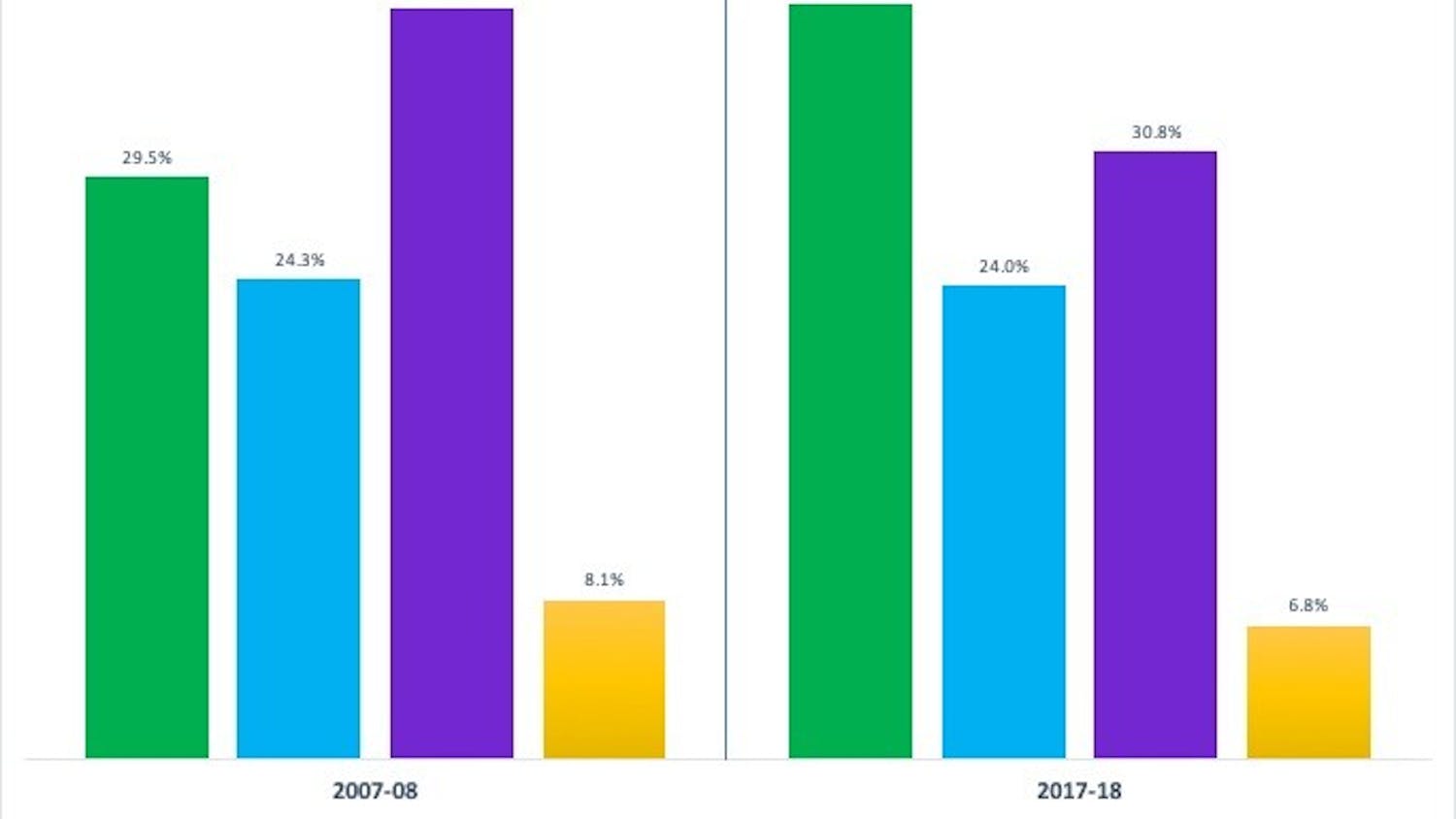This term has been particularly trying for me. My run-in with a head injury and my adjustment to a more social Dartmouth experience has sent my highly structured schedule as a freshman last year into a new chaotic normal.
As I was dealing with the hurdles popping up in each aspect of my life, I was exposed to the reality of Dartmouth’s unaccommodating academic policies. Superficially, Dartmouth appears to have lenient academic policies, including the Non-Recording Option, the ability to drop a fourth course far into the term and the option to “shop” different courses for the first couple weeks of the term. But there is more than meets the eye.
Dartmouth’s academic policies are structured to fall directly into place with a perfectly planned out life. There are far too many constraints placed on the academic policies that are supposedly meant to reduce academic stress. Few students’ terms will pan out within the confines of the registrar’s timeline. If all is going well in a term, then perhaps using the NRO or dropping a class will not be of concern. The problem is, when hiccups arise in a student’s life, and those hiccups are not perfectly timed with the NRO and class drop dates, that student is out of luck.
The NRO, which allows a student to set a minimum grade level at which the grade will show on the transcript, is only available for the first two weeks of class. Unless a student goes into the class knowing they will utilize an NRO, or is overwhelmed in the first few classes, the short NRO period decreases its efficacy. With the fast-paced 10-week term, each assignment holds great value for a student’s overall performance in a class. So what happens when a student is struggling with a personal matter — beyond the first two weeks of NRO election — which prohibits them from achieving their best results?
To help remedy the stress that comes from academic rigor, extracurriculars and personal matters, Dartmouth has resources in place to support our mental health, such as the Counseling Center. In addition, professors may grant extensions with a case-by-case flexibility. However, it’s important to note that mental health resources and extentions can only go so far; Once an assignment has been graded, there is little wiggle room in removing the grade from the record.
Another well-known Dartmouth academic policy is students’ ability to drop a fourth course until Week 7 of the term without receiving a ‘W’ on the transcript. The issue with this policy is that very few students take four-course terms. It certainly is not the norm, and it is illogical to think that the majority of students would keep four courses until Week 7 just in case something goes wrong in one of the classes. Instead, the most common term load for students is a three-course term, and if one one wishes to drop one of the three classes without receiving a ‘W,’ this must be completed in the first two weeks.
Clearly, the efficacy of the NRO and course-drop policy loses merit when its limitations are spelled out. Why have a policy that works for only a small margin of Dartmouth students? It is naive to assume that Dartmouth students are living their lives on a timeline that doesn’t account for errors and mishaps. With the current academic policies, if a mistake is made, there is little room for a rebound. We need to allow Dartmouth students to take risks in their classes and continue to grow as young adults. It is contradictory to the school’s liberal arts structure to have academic policies that necessitate a division between life and school.
A concern associated with creating more lenient academic policies is that the rigor of Dartmouth would be undermined. However, we must not forget that Dartmouth strives to prepare its students to take on the world post-graduation, and that college is a time of self-discovery and change. The rigor of Dartmouth will not fade by making space for students to be people. If anything, it will increase academic performance and happiness.
This term, I have been swimming upstream, looking for something to grab hold of that will allow me to take a second, breathe and go the right direction with my academic performance. The trouble is, there was nothing to grab hold of, because my trials didn’t happen in the first two weeks of the term. With the tabulation of grades at Dartmouth, no matter how hard someone may work to get their grade up in the second half of the term, the first grades will continue to serve as an impediment. When these grades are influenced by factors out of a student’s control, it is truly disheartening.
It is vital, then, that we recognize students are being unfairly punished by academic policies that are out of check with a college student’s experience.



